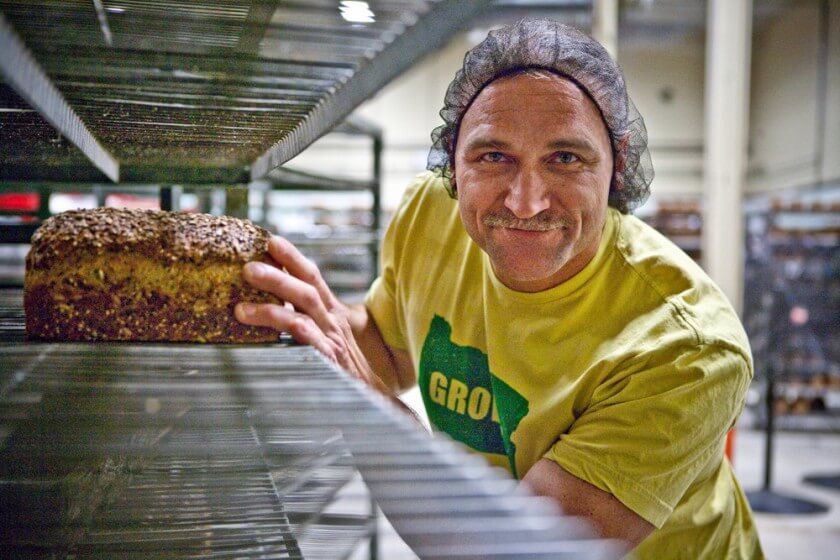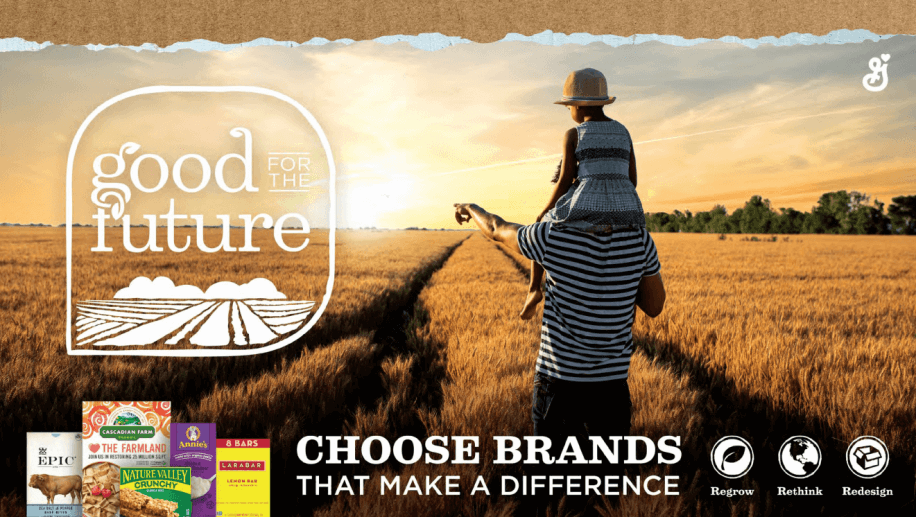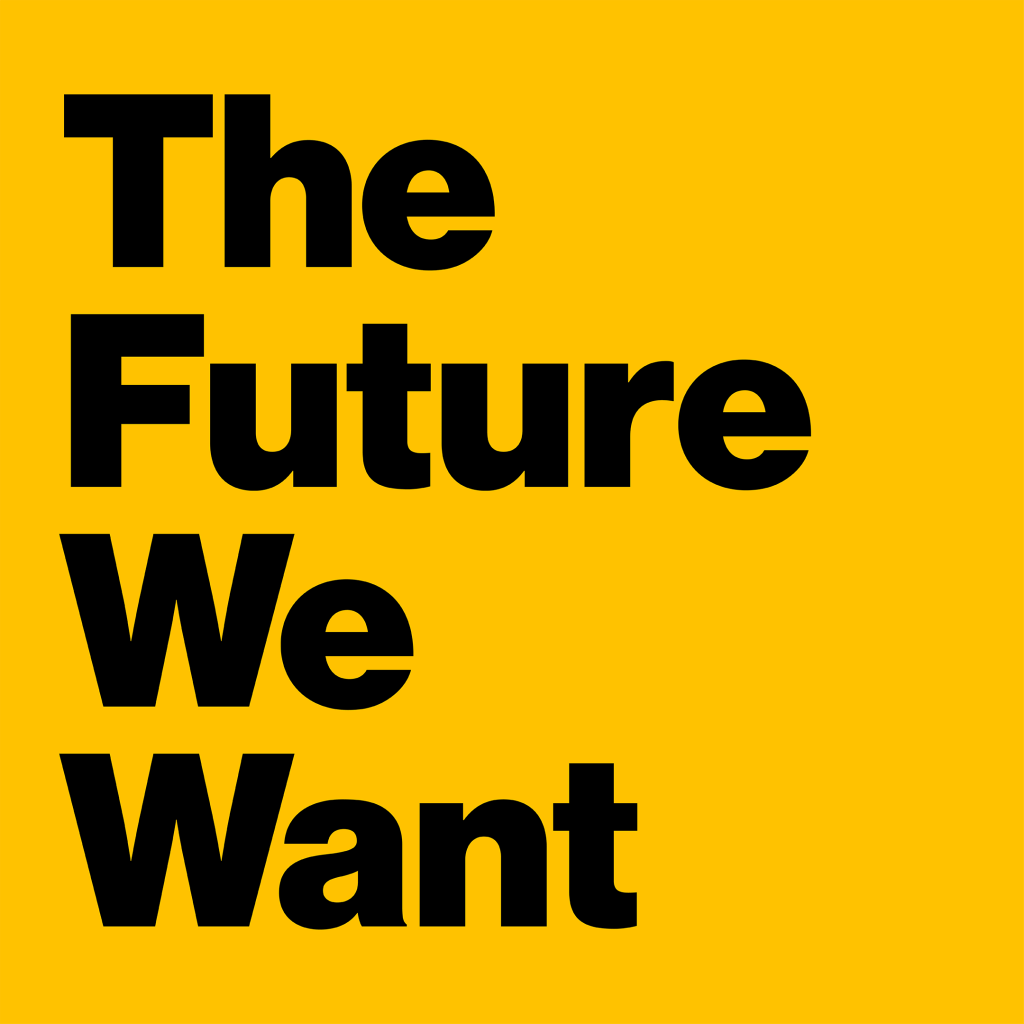A Field Guide to Creating a Regenerative Brand

General Mills and Dave’s Killer Bread are building a radically better future with regenerative business models
With all the upheaval that’s been thrown our way, culturally, economically, environmentally – particularly during this past year – a majority of people are ready for structural change rather than a return to the status quo.
For brand leaders this is an exciting opportunity to rewrite the rules of business and imagine a radically better future. It’s also daunting. With so much shifting and uncertainty, it can be hard to find the right way forward. But not knowing may be a really incredible gift. If we’re going to shift the systems and change the stories that we tell, embracing not knowing is actually a really beautiful posture. Opening up to more listening, more empathy, more learning, and the recognition that we don’t know all the answers – that’s actually what opens the door to new possibilities.
In that spirit of learning from others, BBMG and GlobeScan invited two inspiring brand leaders to join a virtual discussion with us on February 9th to talk about How to Build a Radically Better Future. After sharing headlines from our recent global study, Radically Better Future: The Next Gen Reckoning for Brands (which you can read here), we heard from Danielle Peltier Andrews, Director of Sustainability, Business Integration & Human Rights at General Mills and Genevieve Martin, Executive Director at the Dave’s Killer Bread Foundation.
How can brand leaders advance new ideas to fix our broken systems from the inside out? Read on for the highlights, and you can view the full webinar and download the slides here.
Revealing What Deeper Value Your Brand Can Offer
For better or worse, brands and businesses shape our lives in innumerable ways. When more than a quarter of greenhouse gases globally are estimated to come from the food system, and 80% of that from agriculture, a mega food company like Generally Mills has an obligation to identify how it can be part of the solution to curb climate change and all the other systems affected by it. “When you look at the challenges we face today, you have to wonder, is sustainability actually enough?” says Danielle Andrews, speaking on the company’s bold commitment to advance regenerative agriculture on 1 million acres of farmland by 2030.
“What we’ve come to conclude within our teams at General Mills is that sustaining degraded resources as they are today is just not an appropriate strategy. Instead, we need to renew and restore and regenerate those planetary ecosystems that we depend on,” referring in this case to healthy, nutrient rich soil, clean waterways, and farms that are healthy for the people and animals that reside there. “And it’ll take everyone from farmers to food companies to consumers to influence that regenerative approach.” Because of its vast network of farm partners who grow the crops and dairy products that are key to household brands like Cheerios, Annie’s, Pilsbury, and Yoplait, General Mills is uniquely positioned to help regenerative farming practices go mainstream.

The secret to Dave’s Killer Bread becoming the number one selling sliced organic bread across the country — other than the fact that they make healthy, delicious, nutritious bread — is that they have incredible people that make their products possible. When the company was growing about 40% year over year several years ago, they needed to hire people sometimes literally overnight in order to fulfill orders. This led to an interesting revelation. The company had no intentional practice around hiring formerly incarcerated workers, it was just something they did. And yet, Genevieve Martin explains, “We looked at our best performing folks on the team: who’s willing to come in early, stay late, help us solve problems…we found that in most cases, those folks that went above and beyond that were rockstars had something in common. And that was that they were formerly incarcerated.”
This realization led to the company’s Second Chance Employment model, a cornerstone of their mission and a practice they have since gone on to teach to other organizations through the Dave’s Killer Bread Foundation.
Overcoming Challenges and Resistance to Change
“Having the kind of racial awakening that we’ve had over this past year has forced people to think about things differently, which has been an interesting moment for our work,” Genevieve says. Dave’s Killer Bread Foundation works with companies directly to help them understand and debunk myths around hiring people with conviction histories. “I think one of the critical things we have to think about in any big work, whether that’s changing the world, changing our lives, is that we are working against a system that’s already been created to get the results that it has.
“And so change is uncomfortable. Sometimes it feels lonely, but you’re going to find your kindred spirits,” she adds. “You are going to find people that want a radically different future just like you. And so you can start pushing and pulling on some of these rules or barriers that have been constructed and reframing how those might work to better benefit everyone.”
When it comes to changing our global food system by adopting new approaches like regenerative agriculture, “It’s a pretty, radically different approach,” says Danielle. “As you can imagine, the system at play is designed to do things the way it’s been designed for the last 50 to 100 years.”
“There’s all these really fascinating benefits of regenerative principles. But it’s hard to do,” she admits. Because even just the farming culture of intergenerational farming, you’re asking this generation to do things differently from the past. To overcome resistance to new practices, General Mills is partnering with organic and conventional farmers to pair them up with funding and farmer coaches who have experience with regenerative principles. “This way it’s not General Mills trying to teach someone how to farm, it’s farmer to farmer,” says Danielle. “Our ambition is to be able to show others the proof of all the benefits so that we reduce the barriers for others to try it.”
Reinventing systems also requires buy-in for new practices within company leadership. Genevieve stresses the importance of relating it back to your company’s mission, values, and vision. “Make it really clear that these are inextricably linked, and that by missing this opportunity, this thing that you want to change, your company is actually missing a moment to do really great work.”
Inspiring Consumer Engagement
Once regenerative brand practices are being put in place, the next crucial step is communicating the value to consumers. And this can be a challenge.
“Regenerative agriculture is an incredible solution to a problem that very few people know exists or really can connect to,” says Danielle. “In fairness, we have work to do not just General Mills, but as a collective society, as purpose driven marketers, to picture the problem with just the right balance of tension, to not go into doom and gloom, but to engage people to care about the problem before sharing the solution.”
Educating consumers is a test and learn process. General Mills has begun communicating key points about regenerative agriculture and soil conservation on packaging for products from Cascadian Farm and Annie’s, for example. The hope is that once they get consumers to connect the dots and better understand the system, then they’ll become engaged and interested in the solutions.

For Dave’s Killer Bread, the largest challenge has been people’s personal beliefs around a person that has committed a crime. But their research has found a doorway in. “Fundamentally, Americans believe in second chances. They believe in opportunities. We did a bunch of research on this a couple years ago to make sure people would actually even understand the importance of this work,” Genevieve explains. And what they found is, we all believe we should be able to have a do over. By leaning into the very human side of second chances, they’ve been able to push beyond people’s discomfort and initial biases.
Advice for Rebellious Brand Leaders
For people working at brands to advance new ideas, to shift our broken systems, both Danielle and Genevieve underscore the importance of recognizing that the current system may be working against you, taking time to map how your business is nested within larger whole systems, and then embracing that the topics we seek radical change on are often our passion projects. Making progress on passion projects will be rewarding in time, but you’ll need to take a posture of learning (and unlearning), embrace the discomfort of not knowing all the answers, and find your allies. You won’t be the first person to push the envelope, you’ll be joining a group of incredible brands using their scale and influence to create a radically better future.
How regenerative is your brand? Take our self-assessment and find out.


